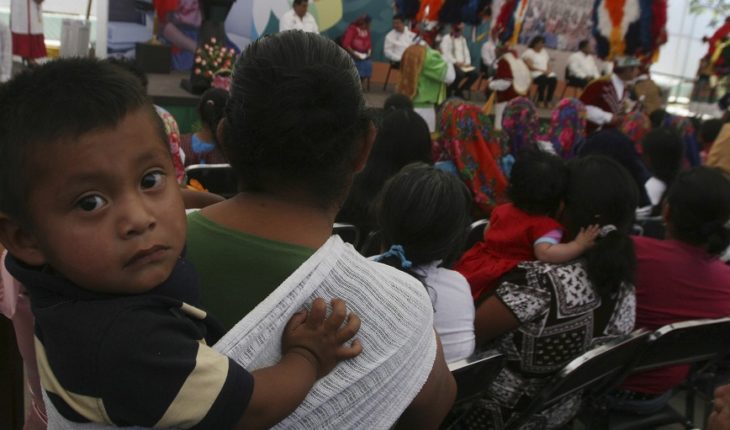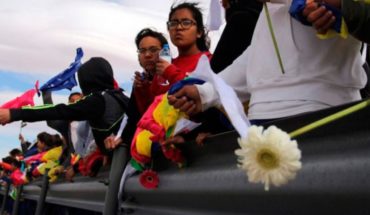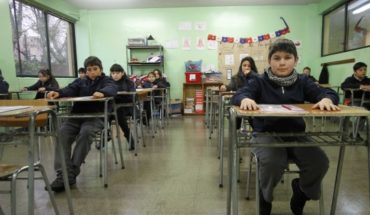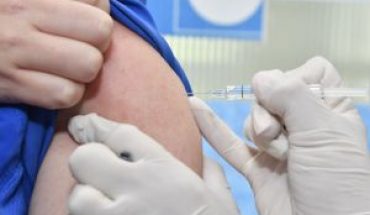The population of the upper chontal region, in the southern mountains of Oaxaca, has little access to health services. There are communities that only one nurse went to to do checks on Prospera’s beneficiaries, every month or every two months, depending on their schedule. There was very little in that area of a doctor, maybe once a year. Now they’re afraid they’re not even that anymore.
Of the total beneficiaries of the defunct program, which was 6.77 million families in the third quarter of 2018, most, 6 million 187,636, were in what was known as Prospera with co-responsibility, that is, they had to prove that their children went to school and they were to attend regular medical check-ups.
The entire family was required to attend once every six months for consultation. Hence, there were other mandatory revisions, depending on age: adults twice a year; under 15, three; every two months and babies every 30 days.
Although it was all just preventive. They weighed them, measured them, gave them some vaccinations, the adults checked for their blood pressure and blood sugar levels. For women, there were Pap tests and breast cancer screening. If family members did not attend the checkups, they would be suspended from money transfers received for child scholarships and feeding support.
All this ended with prospera’s disappearance, and her replacement with the Benito Juarez Welfare Scholarships. What was a three-component program, health, food support, and another for education, was just like that, as a scholarship program, run by a national coordination under the Secretariat of Public Education (SEP).
Read more: Prospera will no longer prosper
Opinions in the face of that change are divided. In cities and places with medical services, mandatory check-ups were taken, by some beneficiaries, as a nuisance. The same as attending the self-care workshops to which program owners and adolescents should attend.
Although that annoyance was also because of the deficiencies and corruption in the service. Five women, inhabitants of the Cerro del Peñón colony, in Jardines de Morelos, in Ecatepec, State of Mexico, say that when the family had to go for the semi-annual review, they had to wait up to two or three hours.
“Then only the doctor would come out, tell the family members and tell them, they can retire now. Just let’s get the headline. We were just waiting to be put in the signature on the card to prove that we had gone, and neither they checked us or anything. It was a waste of time. Husbands had to ask permission at work, children missed school and at all,” says Elizabeth, who prefers to omit her surname.
When they did attend and high glucose or cholesterol came out in the evaluations, they say they were not given treatment or directions to regulate this. “Real medical attention there wasn’t, they just checked you out and already, they didn’t give you medicine or anything.”
Nohemí Leticia Ánimas Vargas, holder of the National Coordination of Scholarships for Welfare Benito Juárez, a program that has already replaced Prospera, says that he has received reports that some doctors charged the recipients at least 10 pesos for settling his signature on the card, and validate the attendance at the checkup.
“We have received some 400 complaints of this kind, from different parts of the country. One, for example, of which we have even video testimonies (and shows it) is in Huilacapuxtla, in the northern mountains of Puebla, where a doctor charged the ladies 80 pesos for signing the card”.
Even, adds, even Ms. Vargas, although in health centers they already know that families are not obliged to go, they kept telling them that they should attend and pay. “We’re spreading that that’s over.”
Attendance at self-care workshops is also something that divides opinions. Elizabeth and her neighbors say they’re going to miss them.
“They were good. He was explaining to us about diabetes, several conditions. They gave us the agenda before and we had to investigate the subject. Everyone exposed their own thing and said what they thought. The nurse who gave them was very accessible and answered our doubts,” says Teresa Raigosa, also a resident of Jardines de Morelos, in Ecatepec, State of Mexico.
Instead, Elena Joaquín Rodríguez de Boca del Monte in San Juan Guichicovi, Oaxaca, says that she did not like to go.
“Every two months they gave us the workshop, they were about how to take care of us, about having hygiene, but it was two hours or two and a half, and I have to work, sell my bolis (frozen). Also going to the health center for the checkups was a burden, nor did they give medicine or anything. I have popular insurance, I’d better go there and that’s it.”
Martha Antonio Santos, from Chimalhuacán, State of Mexico, says she won’t miss the workshops either. “It was heavy to go, I work, I sell outside schools, and that’s enough to be tired. They also left us homework, we had to research the issues and fill three sheets, but I can’t read, my daughter or daughter-in-law had to help me, and it was more work for everyone.”
Places where it’s no trouble
In communities in the Sierra chontal de Oaxaca, such as Santa Lucía Mecaltepec, San José Chiltepec, San Pedro Sosoltepec, San Miguel Chongos and Santa María Candelaria, in the municipality of San Carlos Yautepec, the situation is another. There you will miss prospera’s health component.
With resources earmarked for the program, doctors and nurses were paid to do regular checks on beneficiaries. Only in this way did they go up, says Erika Carbajal of the tequio Jurídico organization, which does community work in the area and gives legal support to indigenous peoples.
In these communities there are only health homes, which are actually one or two rooms, used more as a bedroom for visits than to give care to the population. “In these houses, little has come with Prospera: the scale, chairs and sporadic visits from a nurse and rarely from a doctor,” Carbajal says.
Drugs, there’s hardly any, the activist says. “We know because when we go, people ask us for things that we bring in our medicine cabinet, they don’t have in the health house or the basics.”
“Now, as Prospera disappeared, they were told that the nurse will no longer go, and they will take you to the scale and chairs. That from the reviews was minimal access to health personnel, precarious, but it was the only thing they had. The municipal head, where there is a clinic, is far away and they cannot come down to be cared for.”
In Chibilub, Tekom police station, in Yucatan, Dona Paulina, the community health promoter is the only “medical staff” that the community has. In his house he keeps the few medicines there are for the inhabitants. Her neighbors knock on her door when they have an upset and she prescribes them. He has no medical training, only workshops, but it’s the most there is.
To serve her neighbors, Dona Paulina had an assistant, another community promoter. They both were given medication, on Prospera’s side, to care for people in their homes, but with the demise of the program that will change.
‘They hadn’t taken drugs for my assistant anymore and now they told me that maybe they’re not going to take us anymore. But we don’t know well and no one tells us.”
The other thing that the beneficiary families will stop receiving is the dietary supplement they gave to pregnant women, and to children under 2 years of age or 5, if they were malnourished.
Although Nohemí Ánimas Vargas, the holder of the Coordination of Scholarships for Welfare Benito Juárez, the program that replaced Prospera says that its effects are exaggerated.
“Actually a lot of ladies didn’t even give the supplement to the kids, they told us they didn’t take it because it tasted ugly, and it turns out the Prospera advocates say it helped them grow up, when it actually went to the trash.”
In this, experiences are divided as well. Martha Antonio Santos, former holder of Chimalhuacán, State of Mexico, says she was given the supplement for her granddaughter when the girl was a year and a half old, “but she didn’t want to eat it. It was a powder in a little envelope, they told me to give it to him in the fruit or with the soup, but he was telling me it tasted ugly, we ended up throwing it all away.”
Instead, Marlén Molina, also from Chimalhuacán, says she had no problem. The youngest of her daughters, who was one year old when they entered the program, consumed the supplement without any gesture.
“He never told me anything, I think he didn’t even know he was putting it in soup or fruit. He just ate things. I don’t know how much it’s helped him, but we do use it.”
What we do in Animal Político requires professional journalists, teamwork, dialogue with readers and something very important: independence. You can help us keep going. Be part of the team.
Subscribe to Animal Politician, receive benefits and support free journalism.#YoSoyAnimal
translated from Spanish: Marginalized population, no medical checks at last Prospera
August 29, 2019 |





